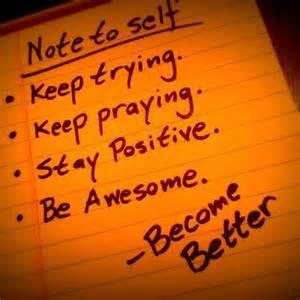Since the release of the first book in The Quarter Method series, I have been doing interviews. Over time I have noticed that a majority those interviewers will bring up movies like Boiler Room and Glengarry Glen Ross as a reference to elite-level sales.
Every time I hear this comparison I cringe. Do the people who have fond memories of these movies realize they were about people who were committing federal fraud? Boiler Room was about investment fraud, and Glengarry Glen Ross was about real estate fraud. These “sales” people—and I use the term loosely—were all committing a crime to fraudulently steal money from unsuspecting people. In essence, they were con artists.
I actually cover this point in the second Quarter Method book, Communicating in High Definition. The entire sales industry has been corrupted, from a marketing perspective, by a small percentage of people who use the term “salesperson” instead of “con artist” because the “mark” would run if the business card said John Smith, Con Artist.
True sales are the backbone of all society. Truth is the ideal to strive for in all person-to-person communication. If you are dealing with someone who triggers your subconscious red flags, run! Your instincts have been tuned by your life experiences, and red flags go up when your experience recognizes a risk or a threat.
My clients will unanimously tell you that my sales process was not only easy, it was enjoyable. I do NOT con my clients into a sale! I advise them and point out the return on investment, but the final decision is always theirs. If they are not comfortable throughout the entire process, something is wrong.
There is NO pressure! Let me repeat that because it is very important. There is NO pressure! I either represented myself as a professional who could satisfy their needs and wants, or I didn’t. They either want to buy from me, or they don’t. Either way, it was something I did. If they don’t buy from me, it is because I did something wrong, or I didn’t do something right. It’s my job to sell!
Almost every sales book I have ever seen is written like a con artist training manual. They all say things like “Always be closing” or “Don’t take NO for an answer,” or my favorite ridiculous concept, “The prospect has your money; go get it from them!” Some of you may be reading this thinking there is a psychological component to train the sales rep: perserverance.
Let’s think about that concept for a second. If I tell my waiter I don’t want a bottle of wine and he brings it anyway, is that good service? If I tell the car salesperson I need an economy car and they take me to the luxury models, did they read my mind or lose my business? You are the buyer, it is your money, and they are bullying you for your lunch money. That is not what elite sales is at all.
Elite sales is defined by a simple transaction that was preceded by a getting-to-know-you phase and an advisory phase. During the getting-to-know-you phase, I listen to everything the client wants to talk about, and I ask questions to gain clarity. During the advisory phase, I make recommendations based on our conversation, and I answer any questions the client may have for their own clarity. Once we have agreed on the products and/or services, we sign an agreement. It is that simple! If you are stressing out on a daily basis to make sales, you are doing something wrong. Pssst, I know a guy with an amazing training program called The Quarter Method. 😉 You should check it out!
Roy “Will” Wilhite
Founder/CEO, The Quarter Method
25+ Years of Wisdom!
Wisdom is a combination of knowledge and experience!
Never try closing when the client is at a negative or a passionate “NO”. It usually leads to anger, and the exit!
A Decision Maker in a big company will probably know all of the tricks themselves and can see closing techniques coming. One of my biggest pet peeves is a sales person trying extremely clumsy closing techniques on me after they find out what I do for a living. If someone you’re trying to sell is obviously a seasoned sales professional, just be straight and direct. They will appreciate the respect, and give you what you need to get to the close ASAP.
1. You’re not in the sales business, you’re in the people business.
2. What the customer wants to buy is more important than what you want to sell.
3. Clients buy personal benefits. This is true for both Business and Personal purchases.
4. You have two ears, one mouth. Listen twice as much as you speak.
5. Trust your own instincts. Trust your gut; if you’ve developed your gut feeling through experience.
6. Always give them more value than they expected; they’ll never forget it.
7. It’s not that hard, really!
Roy “Will” Wilhite
The Pipeline
We’ve all seen the images of a pipeline that look like a funnel. With all of the prospected leads going in the top and the closed deals coming out the bottom.
But what is actually happening at each stage of the pipeline? Did you know there are stages to a pipeline? They are (according to the image):
1. Red-All leads
2. Orange-Contacted leads
3. Yellow-Identified need for service
4. Teal-Meet with the client
5. Blue-Bid/Proposal process
6. Purple-Signed Agreement
7. Bullseye-Servicing and referrals.acceleration process where the water speeds its way down through the drain, and finally the water (signed client) shoots out the bottom.
But, after careful consideration, I have decided that the pipeline looks more like a stack of Wooden Labyrinth Maze games; with each individual wooden labyrinth representing another stage in the “Pipeline”.
I think this is better as a visual reference because it indicates that each stage is a maze of skill and one bad decision is all it takes to fall out of the game or lose the potential client.
If you can visualize every lead as a Robins egg, and imagine the skill it would take to get the lead from one level to the next, and all the way through the process of the multi-level labyrinth to become a client, then I believe you would understand the concept of nurturing every possible lead. They are all precious and fragile; but, with enough skill and patience, you can guide them all to the finish.
Successful Sales People
The MOST important skill for a professional sales person is the natural ability to ask questions, and the Most important character trait for a professional sales person is to be unassuming!
When you first meet a potential client, or even a returning client it is important to remind yourself that you have no idea what they want. It is important to ask questions to gain information about the client’s needs, financials, time frame, wants, and if I cans. It is also important to not assume you know more than or as much as your client in regard to their needs. Even if you may be right, the client will feel better if they are a part of the process.
If I work for a digital office supply company should I assume that every client wants a black and white, 55 page per minute copier? If I assume that in the beginning of the conversation will I subconsciously be pushing the client toward the 55ppm B&W copier throughout the entire sale? What if this is the third time I have sold to this same client?
Assumption is a rookie mistake! What if that client changed the focus of their business and they wanted to buy 3 large color machines? Would they still want to give you the business if you don’t listen to their needs? Probably not, and when you don’t get the deal you’ll blame the client not yourself. Rookie!
The Crucible
I was recently working with one of my clients on a rather difficult task, and he suggested we stop and do something else because the task was too hard. I asked him who would complete the task if we stopped, and he looked at me as if I were speaking Martian.
It occurred to me that he did not see a future consequence to just quitting. He was only considering the immediate gain.
So I asked him if the rocks in a crucible should get out when the crucible starts to get hot. If they could they would be hot rocks until they cooled, but there would be no long-term change. They would still be rocks.
However, if they stayed in the crucible and accepted the heat; in time they would be able to revel in their purity.
The former rocks could become something better. They could become metal! They would be harder, and more formidable. The best part of this transformation is, now they can be shaped into something special.
They could be shaped into something with an expert purpose.
They could become either a scalpel or a hammer. The point is they could become something more. Something that has been changed at its core.
Starting and running a business successfully will require you to accept the heat of the crucible and learn from it.
You will be burned and changed. But after each crucible you will be more. (more knowledgeable, more business savvy, more resilient, more experienced)
Ultimately, you will be MORE than you were before.
Every challenge you face as an owner is a crucible. Some are hotter than others and some last longer than others; but, if you persevere, you may be running your own fortune 100 company very soon.
If you quit, you’ll just be another “Hot Rock” that couldn’t take the heat!
My Daily Affirmations
Daily Affirmation #1
If I don’t get it done, No One Else Will Either!
Daily Affirmations 2
Daily Affirmation #2
Success or Failure, It’s My Fault!
Daily Affirmations 3
Daily Affirmation #3
I Am The Sum Of Who I Was, Who I Want To Be, And Who I Am Willing To Become.
I Am The Person My Child Sees, The Person My Spouse Loves, And The Person I Deserve To Be!
Daily Affirmation 4
Daily Affirmation #4
Happiness Is NOT Having What You Want, But Wanting What You Have!
Daily Affirmation 5
Daily Affirmation #5
Success In Business Is A Direct Result Of Success In Business Relationships.








